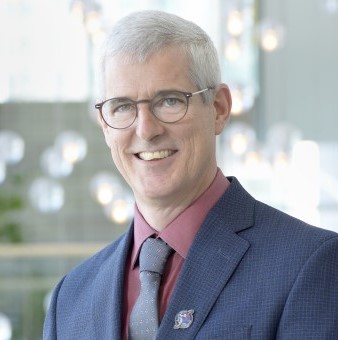 “This represents a breakthrough in the study of human adaptation and life in space,” said Dr. Trudel, senior scientist, rehabilitation physician at The Ottawa Hospital Rehabilitation Centre and professor at the University of Ottawa. “Since many of the changes in astronauts resemble those of people who are immobile in bed, these studies can be highly clinically relevant.”Space anemia, the lowered red blood cell counts in astronauts during and after space travel, has puzzled researchers for decades. But thanks to Dr. Guy Trudel’s work with astronauts on MARROW, we now have a much better understanding of space anemia and how bone marrow fat may influence it.
“This represents a breakthrough in the study of human adaptation and life in space,” said Dr. Trudel, senior scientist, rehabilitation physician at The Ottawa Hospital Rehabilitation Centre and professor at the University of Ottawa. “Since many of the changes in astronauts resemble those of people who are immobile in bed, these studies can be highly clinically relevant.”Space anemia, the lowered red blood cell counts in astronauts during and after space travel, has puzzled researchers for decades. But thanks to Dr. Guy Trudel’s work with astronauts on MARROW, we now have a much better understanding of space anemia and how bone marrow fat may influence it.
The effects of space anemia can last up to a year after returning to Earth, which will have several implications for future space travellers, including more health screenings, adjustments to mission durations and special diets to counteract anemia.
His research has an impact much closer to home, too. “This represents a breakthrough in the study of human adaptation and life in space,” said Dr. Trudel. “Since many of the changes in astronauts resemble those of people who are immobile in bed, these studies can be highly clinically relevant.”
Finding the cause of anemia is the next step, with potential treatments and preventions for both astronauts and bedridden patients, a discovery that may have astronomical benefits throughout the galaxy.
Recently appointed as a senior scientist in the Inflammation and Chronic Disease Program at the Ottawa Hospital Research Institute, Dr. Trudel is a rehabilitation physician at The Ottawa Hospital Rehabilitation Centre and professor at the University of Ottawa. He has received funding from the Canadian Space Agency, NASA and other organizations for his studies.
The Ottawa Hospital is a leading academic health, research and learning hospital proudly affiliated with the University of Ottawa and supported by The Ottawa Hospital Foundation.
